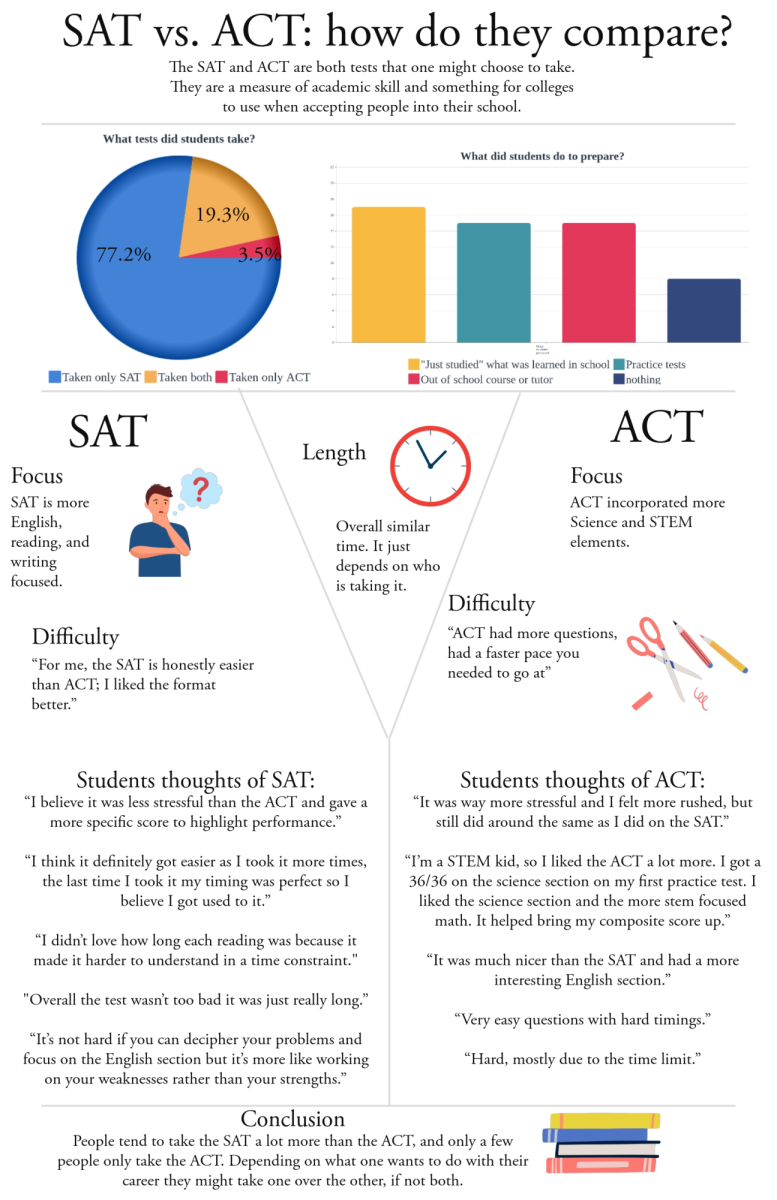The power of negative and positive thinking
May 29, 2023
Negative thinking can become ingrained in our minds, affecting our overall well-being without us even realizing it. For many individuals, negativity becomes their default mode of thinking, shaping their perspective and influencing their daily experiences. It doesn’t just affect those things, though, it also negatively affects our health.
Negative thinking has detrimental effects on the brain, impairing its ability to think, reason, and form memories. The act of indulging in negative thoughts drains the brain’s resources and establishes a pattern of negative thinking as the default mode. By engaging in repetitive negative thinking, individuals effectively wire their brains to produce and perceive more negative thoughts.
Negative thinking can cause stress, which, in turn, fuels more negative thinking, creating a vicious cycle. Chronic stress resulting from negative attitudes and feelings of helplessness and hopelessness disrupts the body’s hormone balance, depletes essential brain chemicals responsible for happiness, and weakens the immune system. It has even been found to shorten our lifespan by affecting telomeres, the protective caps of our DNA strands.
A powerful technique to counter negative thoughts: instead of ignoring them, individuals are advised to pay attention, pause their activities, and close their eyes if necessary. They should then actively replace negative thoughts with positive ones and hold the positive thought in their minds for at least a minute. This simple exercise taps into the brain’s neuroplasticity, its ability to reorganize and form new neural connections, thereby opening the door to shift towards a more positive mindset.
Forgiveness is another significant way to think positively. Fully accepting negative events and letting go of negative feelings associated with them has been shown to have profound benefits for mental, emotional, and physical health.
The Stanford Forgiveness Project, which trained adults in forgiveness over a six-week course, reported that participants experienced a decrease in feelings of hurt, reduced anger, and fewer physical complaints. Forgiveness has also been linked to improved immune function, cardiovascular health, and a longer lifespan.
The role of gratitude in cultivating positive emotions and improving well-being is also helpful. Acknowledging and expressing gratitude for the good aspects of life have been shown to have a powerful impact on emotional well-being. Counting blessings and focusing on the positive aspects of daily experiences lead to increased happiness, reduced physical complaints, better sleep, and enhanced overall mental health.
Resilience, the ability to endure and overcome challenges without falling apart, is another key factor associated with positive thinking. Resilient individuals acknowledge and experience tough emotions without denying or suppressing them. They can maintain a sense of positivity that helps them navigate through difficult circumstances, viewing them as opportunities for personal growth and an expanded outlook on life.
While some people may naturally gravitate toward positive thinking, positive thinking is also a skill that can be learned and developed by anyone. By consciously replacing negative thoughts, practicing gratitude, surrounding oneself with optimistic individuals, making time for enjoyable activities, and cultivating self-compassion, individuals can train their minds to adopt a more positive outlook.
Research suggests that positive thinking offers a range of physical and mental health benefits. Optimists tend to live longer, have a lower risk of heart disease, better physical health, greater resistance to illness, lower blood pressure, improved stress management, and better pain tolerance. Mentally, positive thinkers exhibit increased creativity, problem-solving skills, clearer thinking, better mood, improved coping mechanisms, and a reduced risk of depression.
Overall, many individuals unknowingly fall into the trap of defaulting to negative thinking, often underestimating the huge impact it can have on their well-being. By recognizing the significance of this issue, we can take the first step towards breaking free from this cycle. It is crucial for individuals to become aware of their thinking patterns, challenge negative thoughts, and actively engage in practices that promote positivity. Through having an optimistic perspective, we can rewire our minds, leading to a more fulfilling and vibrant life.




















